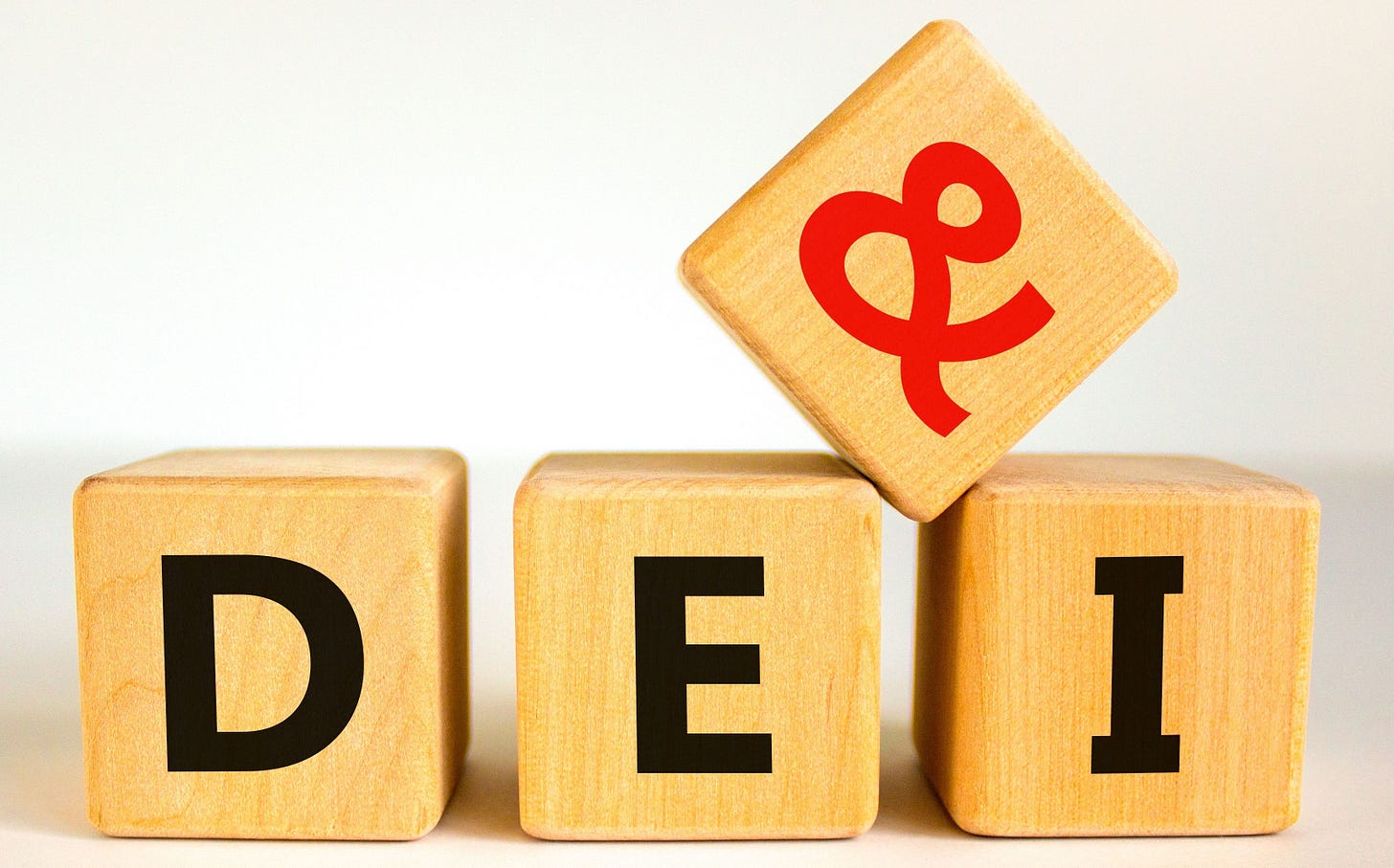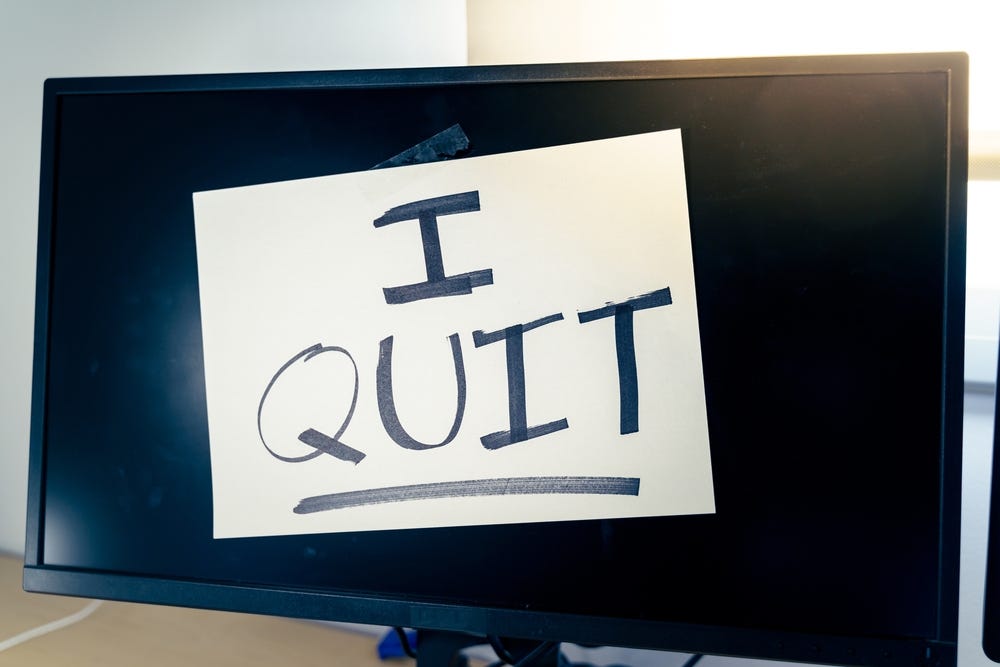E-Pluribus | March 29, 2023
What has DEI got to do with higher education anyway?; heckler's veto, or speaker's choice?; and what successful anti-free speech protestors miss.
A round-up of the latest and best writing and musings on the rise of illiberalism in the public discourse:
Josh Blackman: Higher education faces an inflection point with DEI
Universities have sunk untold millions in Diversity, Equity and Inclusion efforts in recent years. At The Volokh Conspiracy at Reason, Josh Blackman poses the question, is DEI even compatible with the mission of these institutions?
[I]s DEI, as understood by Steinbach and Eldik, consistent with the mission of higher education? I think the answer has to be no. Michael McConnell, the only right-of-center scholar at Stanford, made this point sharply in WSJ: “Nor is it possible to ignore the damage that university diversity bureaucracies can do to the scholarly values of liberal education. Diversity and inclusion are of course good things, but neither value is advanced by partisanship and censorship.”
Dean Martinez hinted at this problem: “The university's commitment to diversity, equity, and inclusion can and should be implemented in ways that are consistent with its commitment to academic freedom and free speech. . .
Again, how could it be that well-trained DEI Deans at elite institutions can have such a fundamentally flawed vision of the purpose of an academic institution? And what are these DEI staff teaching law students? Indeed, Steinbach doubled-down on her position in the WSJ: “Diversity, equity and inclusion plans must have clear goals that lead to greater inclusion and belonging for all community members. How we strike a balance between free speech and diversity, equity and inclusion is worthy of serious, thoughtful and civil discussion. Free speech and diversity, equity and inclusion are means to an end, and one that I think many people can actually agree on: to live in a country with liberty and justice for all its people.”
Compare what Martinez said with what Steinbach said. Martinez wrote from a classical liberal perspective: DEI "actually means that we must protect free expression of all views." Free expression is the ends, and DEI is one of many means of getting there. Steinbach wrote from a utilitarian perspective: free speech and DEI are both "means to an end" to achieve "liberty and justice." For Martinez, free speech prevails over DEI. For Steinbach, free speech and DEI are both mere tools that are subordinate to some amorphous concept of "liberty and justice" (presumably defined by progressives like Steinbach). And when free speech does not lead to DEI, then the free speech must be subordinated. . .
Read it all.
Mary Eberstadt: You Can’t Cancel Me, I Quit
The growing body of evidence that some universities and their students have no interest in having their preconceived notions challenged has some speakers doubting the usefulness of even making the attempt. Mary Eberstadt (writing at the Wall Street Journal), contemplating a less than welcoming reception at Furman University, decided that (in the words of Stanford DEI dean Tirien Steinbach) the juice was not worth the squeeze.
. . . Some months ago, the head of Furman’s Tocqueville Program invited me to give a public lecture about “Primal Screams.” Not knowing a soul there, I googled. Nestled in scenic Greenville, S.C., the university was founded in 1826 by the Southern Baptist Convention. Furman’s website features young people said to be “innovative in their thinking, and compassionate in their approach to career, community, and life.” The Tocqueville Program has hosted impressive speakers. This seemed a promising opportunity to visit an attractive campus, befriend some students and faculty, and talk over ideas. What could go wrong?
[ . . . ]
[S]omething called the Cultural Life Program at Furman, which requires students to attend a certain number of public speeches, mysteriously decided to deny credit for mine unless the program inserted a different faculty interlocuter rather than the one who had invited me—presumably because the latter would have been too supportive. An article was posted by the independent online student newspaper, the Paladin, attacking the Tocqueville Program, applauding the public abomination of Scott Yenor, darkly noting that Catholics had been invited as speakers, and taking potshots at me. There’s no evidence that the indignant writer had read my books or even knew their titles. The piece accused me of perpetuating “dangerous” (dog whistle) myths, adding that students “demand to interrogate” (another whistle) the Tocqueville Program.
Posters advertising my speech disappeared en masse around campus the week before the event. They were replaced and disappeared again. Furman community members following social media and conversations on campus relayed independently that the protest was expected to be “substantial,” as two put it. They also informed me about a letter that was sent by some students to the Cultural Life Program’s committee, caricaturing my work and calling me names in an effort to revoke credit for attending my speech.
As I mulled what to do about such unexpected hostility, different calculations came to mind. What might be the odds of an ugly Yenor-style experience? Likely high.
[ . . . ]
In the end, it was a different thought that led me to pull the plug. As Liel Leibovitz put it recently in First Things, “The terrible power our pursuers hold over us, the power of intimidation and of setting the terms of the debate, dissolves the moment you realize you’re free to disengage.” To which I add: Bullies have a right to protest, but that right doesn’t extend to dragooning others into untruths—including the untruth that people who join a hateful mob have any intention of listening to a speaker in the first place. They don’t, and the rest of us are under no obligation to help them live that lie by playing along.
Read the whole piece.
Ruth Marcus: Stanford Students Lost A Chance to Learn When They Shouted Down A Judge
While Ruth Marcus is no conservative and no fan of judge Kyle Duncan, the Washington Post columnist writes that Stanford students nonetheless erred in refusing to hear him out. Aside from the missed opportunity to show civility in a public setting, the protestors also missed to a chance to air their own views and contrast them with Duncan’s, choosing instead to bury the substantive issues under a pile of verbal manure.
“I mean, is it worth the pain that this causes and the division that this causes?” [Stanford associate dean] Steinbach asked [federal judge Kyle] Duncan, who was invited to address the school’s chapter of the Federalist Society. “Do you have something so incredibly important to say … that is worth this impact on the division of these people who have sat next to each other for years, who are going through what is the battle of law school together, so that they can go out into the world and be advocates. And this is the division it’s caused. When I say ‘Is the juice worth the squeeze?’ That’s what I’m asking. Is this worth it?”
[ . . . ]
This is the wrong question, and while there’s been enough appropriately horrified commentary about the unacceptable behavior of the Stanford students who heckled Duncan, it’s important to explain why. It involves the difference between civility and self-censorship.
Civility is important and too often lacking, as the Stanford incident itself demonstrated — both the students and the judge apparently missed some important childhood lessons on that score. Duncan was shouted down; as he entered the classroom to give his talk, he said, one protester yelled, “We hope your daughters get raped.” Duncan’s response can be safely described as injudicious. “You are an appalling idiot,” he told one student.
[ . . . ]
But should Duncan, as Steinbach suggested, have chosen to turn down the Federalist Society’s invitation and voluntarily absented himself from Stanford’s campus? No — a thousand times no — not for his own good but for the very benefit of the students who are most offended by his position.
How much better off would they have been to allow him to speak, and to respectfully challenge his reasoning in the pronoun case? The chances of changing Duncan’s mind are minimal, but there is zero possibility of that in the absence of dialogue.
More important, hearing the views of the other side can only aid in rebutting them. If you cannot tolerate listening to arguments with which you disagree, if you prefer to have your convictions reaffirmed rather than challenged, you are going to be less capable of presenting your case, not more.
Read it all here.
Around Twitter
Via Jacob Mchangama with a couple of passages from the great Frederick Douglass (who, by the way, we featured in our Legends of Dissent graphic vignette last year - Douglass, not Mchangama):
Via the Foundation Against Intolerance & Racism, some thoughts from Reason’s Robby Soave on the edits being made to Agatha Christie novels:
And finally, Wesley Yang figuratively defines literally:











